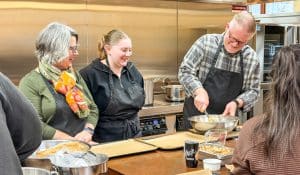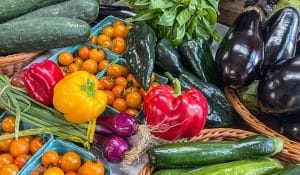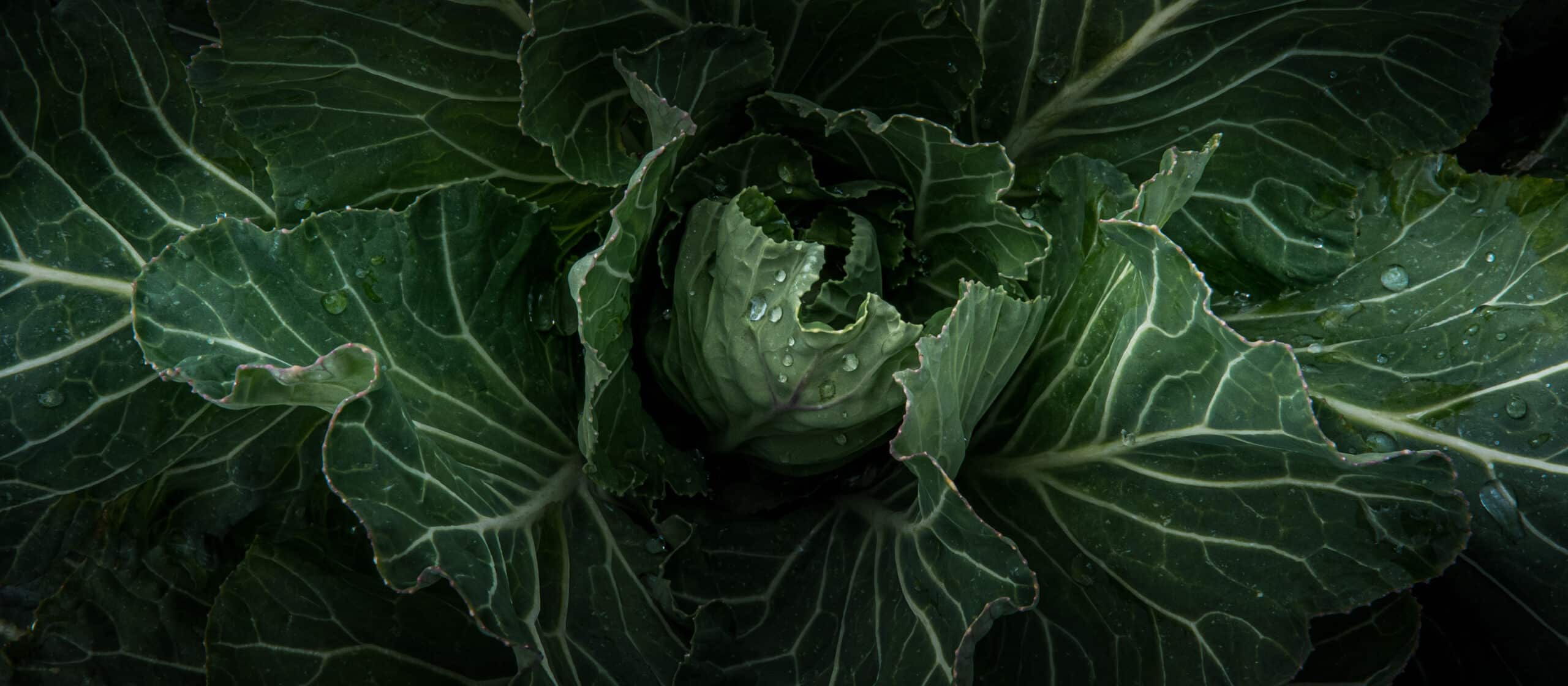
Farmland access is essential in a changing climate
Farmland access is essential in a changing climate
- posted on: June 15, 2021
- posted by: Rebecca Jordan
"*" indicates required fields

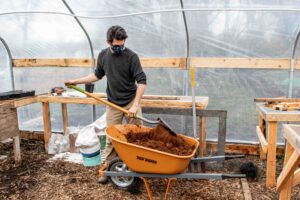
This article was written by Anthony Reyes and Rebecca Jordan.
The average cost of an acre in King County, Washington is $35,000. For farmers looking to be a food security solution in a changing climate, that’s a major problem.
According to this article in The Guardian, one-third of food production is at risk due to rising global temperatures. High-population and high-food production zones near the equator are especially at risk. This not only has major implications for global hunger—the great plains and the west coast of the United States, two of our highest food production regions domestically, are also at risk.
With this scenario a dangerous possibility, two things become clear: 1. We need to grow food in a way that doesn’t contribute to carbon emissions and is responsive to rising temperatures, and 2. We need more farmers to feed the population.
Inequality and discrimination affects access to farmland
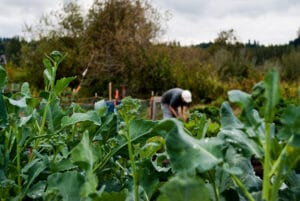
Here in King County, accessing farmland—or any land—can be an uphill struggle. 21 Acres Farm Operations Lead Anthony Reyes was recently interviewed in the Bellevue Reporter about racial discrimination and justice in the agricultural sector. On the barriers to farmers—particularly BIPOC (Black, Indigenous People of Color) farmers—in King County:
Reyes is a Chicano farmer, and said several issues likely contribute to [racial] disparity. One is a lack of transportation for many, and even being able to get out to relatively remote farmland can be a challenge. Access to capital and resources are other areas that impact BIPOC farmers.
Even being able to enter farming in the first place can be a privilege in itself — “where you can take a loss for a couple years, or you have the freedom and the space and capacity to work multiple jobs to make it work, or you’re coming from considerable wealth and capital already,” Reyes said.
Read more in the Bellevue Reporter. Growing food sovereignty movements—where the means of food production is in the hands of those who actually grow that food—are essential toward a just food system that seeks to address climate change. And to do that, farmers who have historically been discriminated against need access to land.
Fortunately, land in any Agricultural Production District in King County is protected in perpetuity for farming. Washington Farmland Trust also does a heavy lift by working with farmers and ranchers across the state to protect that land for future farmers. Unfortunately, high real estate value nearby can have an adverse effect on farmland and make farmland so costly as to be inaccessible to any beginning farmers, communities experiencing historic inequities, or those without adequate startup capital.
Smallholders are a solution to climate challenges
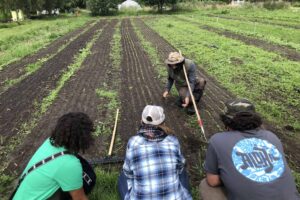
For many small-scale farmers using sustainable, regenerative, and agroecological practices, not being able to access farmland is a missed opportunity to address climate change while growing food. If only major corporate players have a say in how our food is grown, it’s likely that the climate will worsen. Traditional agricultural practices—huge fields of monocropping and pesticides—contribute to between 17% and 31% of greenhouse gas emissions.
But we don’t have to farm this way. Smallholders and peasant farms provide 70% of the world’s food on less than a quarter of the world’s agricultural land. Not only do we rely on them for breakfast, lunch, and dinner—they can actually capture carbon in the atmosphere through practices such as cover cropping.
Climate change is coming—Policies and practices are changing with it
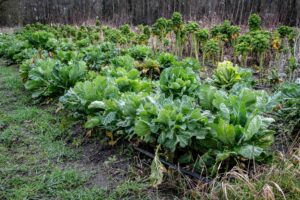
The fact is that the climate is already changing the way farmers work. Warmer temperatures in King County and Snohomish County mean earlier snow melts, increased storm intensity, rising saltwater, unseasonable floods, and unpredictable spring frosts. For some, that can mean strategizing with government and nonprofit environment groups to find solutions that work within existing plans to address this new, unpredictable normal. For others, it can mean changing what they farm—even shifting to more drought-tolerant crops. That change requires resources and planning, and could lead to shortages of crops we’re used to seeing on shelves and in refrigerators.
Farmers like Reyes and those working with Washington Farmland Trust, among many others, know that farming for healthy soils and a healthy climate is in the best interest of consumers, farmers, and the surrounding ecology. In fact, 86% of farmers are willing to accept financial or technical assistance in order to enable them to adopt climate-friendly practices. The Washington State Farms and Fields Bill, passed in April of 2020, was a step forward in addressing these inequities and empowering farmers to be solutions to climate challenges. Though this program is still getting its legs and needs considerable funding, these resources can help bridge the inequities in farming, support the small-scale producers, and empower those eager to be a solution to climate and food security challenges.
Take action
Protecting farmland—and making it accessible to farmers willing to steward it with environmentally-conscious practices here in King County and across the globe—is a vital way to ensure we can continue to feed ourselves far into the future. Take action and learn more about how farming can be a solution to climate challenges, and if you live in Washington state, learn how to support local farms for a healthy climate.
About Becca Jordan
Becca Jordan is our Operations Manager at 21 Acres. Becca connects with visitors and keeps 21 Acres communications running smoothly. She has a variety of background experience, from science fiction writing and art to education, technical theatre, and costume design to horse care. She’s passionate about learning new things about the natural world and social and climate justice. In 2015 Becca participated in the Clarion Writer’s Workshop and graduated with an MFA from California Institute of the Arts in 2016. Becca originally hails from Escondido, California. Her favorite parts of the Pacific Northwest are the ancient trees and the plethora of life around every corner.
About Anthony Reyes
Anthony is a Chicano farmer, activist, and practitioner-student of agroecology who works as our Farm Operations Lead. He comes with over a decade of experience in crop production and sustainable agriculture. He most recently comes from Santa Cruz, CA where he managed the Homeless Garden Project farm. Prior to that, he was with Tilth Alliance managing, expanding production, and building farm-based curriculum for the two Seattle Youth Garden Works farm sites and the Rainier Beach Urban Farm and Wetlands. Anthony stays an active member of the WA sustainable farming community and when not on the farm you can find him trekking the beautiful PNW landscapes, playing bluegrass music, or working and consulting with local farms and food and agriculture justice nonprofits.










 back to blog overview
back to blog overview


